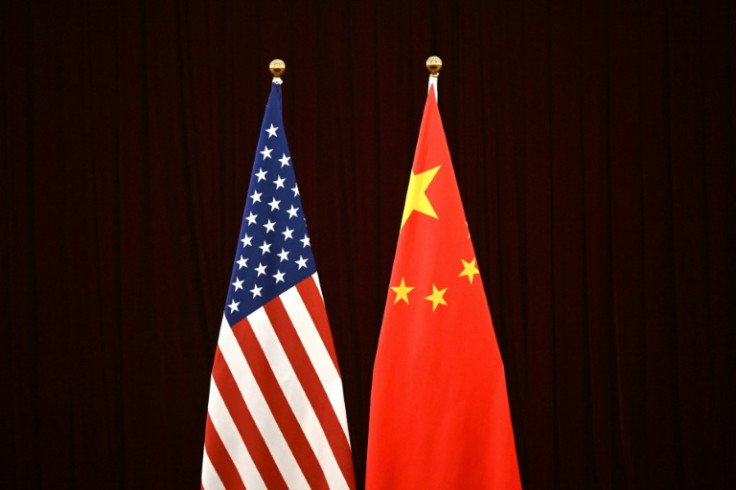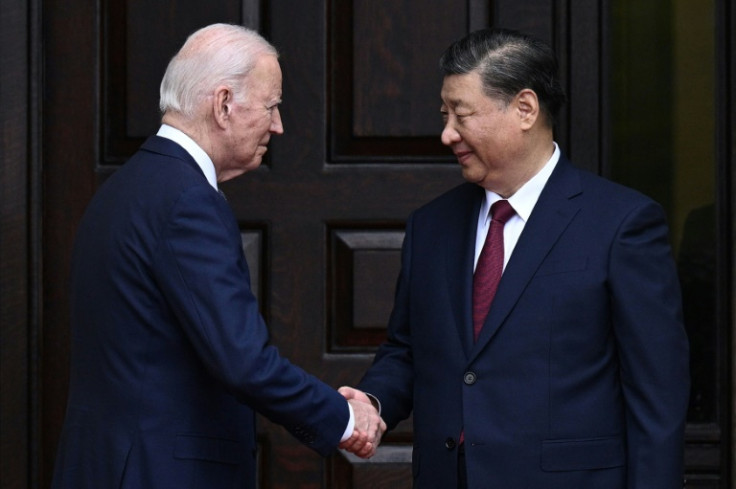US To Raise Concerns At First AI Talks With China

The United States and China will hold their first talks on artificial intelligence on Tuesday, with Washington set to raise concerns about Beijing's use of the fast-emerging technology, US officials said.
The inaugural dialogue -- announced during Secretary of State Antony Blinken's visit last month to Beijing but without a confirmed date -- will take place in Geneva.
US officials said they did not expect any concrete agreements or offers of cooperation from the dialogue, but wanted a channel of communication on each country's views and perceptions of risk.
China "has made AI development a major national priority, and of course it's rapidly deploying capabilities across civilian as well as military/national security sectors," a US official said on customary condition of anonymity.
The Chinese effort is often taking place in a way "that we believe undermines both US and allied national security," he said.
"We will reiterate our concerns about Beijing's use of AI in that regard."
Another US official noted that Washington has previously voiced concern about the potential for election interference through AI, although the issue would not be specifically on the agenda in Geneva.
Presidents Joe Biden and Xi Jinping agreed to open a formal dialogue on AI when they held a summit in California in November.
In Geneva, the United States will be represented by Tarun Chhabra and Seth Center, officials involved on emerging technologies at the White House and State Department, respectively, National Security Council spokeswoman Adrienne Watson said.
Both China and the United States are rapidly developing their AI sectors, with Washington and its allies increasingly alarmed about the capacities available to Beijing's communist authorities.
US experts have voiced alarm over the growing ability by Chinese AI engineers to produce "deepfakes" -- impersonations of real or dead people.
The United States, European Union and Britain have been working to set regulations on AI in ways they say will protect individual privacy and security.
China has sought its own path on artificial intelligence but attended a major meeting last year on AI safety called by Britain.
At the talks, China and the United States joined other nations in agreeing on the need to "collectively manage potential risks" of AI at the global level.
The United States and China have gradually been stepping up dialogue to ease tensions that had risen sharply in recent years.
Officials from the world's two largest economies separately last week held their latest talks on climate change, one area that Biden has identified as open for cooperation.
The Biden administration, however, has not stepped back from raising pressure on China, with a decision expected Tuesday to ramp up tariffs on Chinese clean energy goods.
Technology has been a key area of friction as the United States restricts exports of advanced semiconductors to China and threatens to ban blockbuster video-sharing app TikTok unless its Chinese owners sell it off.
TikTok last week agreed to begin labelling AI-generated content from several platforms, seeking to address concerns about the proliferation of deepfakes.

© Copyright AFP 2024. All rights reserved.





















